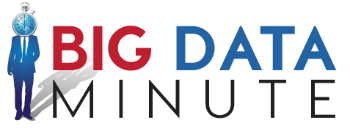
by Tara Buck | Nov 11, 2015 | Big Data, Project Management
You can pretty much look anywhere on the internet today and find an article, post, or book written on the benefits of Big Data. It is on the mind of every executive out there, and rightfully so. While the benefits do greatly outweigh the downsides, it still needs to be brought to attention that there often remains a weak link in big data- the data itself.
Without good data, the business intelligence gained from it can all be deemed useless. Without good data, companies find themselves spending unnecessary time and money in an attempt to clean it up. So, rather than focusing right now on how much data we could possibly gather, shouldn’t we be focusing on how to retrieve the ‘correct’ data?
Annual BI and Big Data expenditures are expected to reach $114 billion by the end of 2018- not a number to be taken lightly! It is estimated that almost $65 Billion of that is absorbed or unrealized by businesses each year due to return mail/bad data. Poor data is prevalent in nearly every major industry, from healthcare to retail and finance to telecommunications.
USPS gave us a perfect example of how crucial good data is when they incurred $1.5 Billion in costs processing “undeliverable as addressed” mail. While there were many other factors, over half a billion dollars in expense was due to businesses having wrong addresses in their databases.
Organizations can continue to go along as many are today, gathering all of the data they can get their hands on, because somewhere within that, the good data will fall. However, in an age of efficiency and desire to save as much time and money as possible, executives should drive their organizations to ensure data is properly entered from the beginning or corrected within the systems and databases. Thankfully, there are many products already on the market that can help companies with this today.
After getting rid of the crud in the data and spending our time retrieving only what matters, we will begin to see Big Data being used to its fullest potential. Oh, the possibilities!

by Stephanie Rabinowotz | Nov 9, 2015 | Customer Satisfaction, Data Science
This is a great article written by a colleague of mine about the effects big data is having on the insurance industry. With something as personal as insurance, customers want to feel that they are getting coverage that has been custom made specifically for their needs. No one wants to feel like they are over paying for a plan that they have been lumped into with complete strangers. See how big data is allowing insurance companies to treat their customers more individually and create coverage plans to fit any lifestyle!
Big Data in the Insurance Industry
Virtually every industry has found a way to put Big Data and data analytics to use. What are the industries that are utilizing the benefits of the data revolution? Education, manufacturing, retail, healthcare, telecommunications, and more. Really there is not an industry that can’t benefit from analytics.
Today, we will be talking about analytics in the insurance industry. Technology in this industry is booming. So what areas are being impacted the most?
Personalization
Similarly to many other industries, real-time data leads to a more personalized customer experience. Customers are more likely to feel as though they are being fairly treated and assessed, as individuals. They are no longer at the mercy of generalizations. This provides a more positive experience for them, making them more likely to remain loyal customers.
This also provides a more accurate risk assessment for the insurance companies. They, too are no longer at the mercy of generalizations.
Underwriting
Underwriters are also no longer at the mercy of generalizations. Through real-time data mining, they can better evaluate an individual, to match him or her with the best policy. They can also provide more accurate pricing based on the data assessments.
Fraud Risk
Unfortunately, fraudulent claims are rather common. But data mining and predictive analytics are starting to change that. Not only can they better evaluate the initial risk of fraud, but after a claim is made, they can track digital and social channels for evidence of fraudulent behavior.
Reducing Cancelation
Similarly to many other industries, advanced analytics greatly improve customer retention. In the insurance world, they leverage data to identify risk of impending cancellations. This way that can take preventative measures, and address unhappy customers.
They can even seek out more loyal consumers. Insurance companies are using predictive analytics to help them choose long-term clients. Because everyone knows that retaining customers is cheaper than getting new ones.
Relationships With Customers
This has clearly been brought up over and over again. And its an area where every single business or organization can improve; data analytics are the most effective way to improve customer experiences.
The insights from data analytics can be used to identify lifestyles, customer preferences, and characteristics. If employees that interact with customers have access to this data, then they can act on this. The data allows them to truly get to know the customers. By identifying with the customers, they are more interested in providing a positive experience for them. Simultaneously the customer really appreciates the personalized experience.

by Stephanie Rabinowotz | Nov 6, 2015 | Customer Satisfaction
Today’s culture is all about instant gratification. If we can’t get our Starbucks in a drive through or if our SnapChat won’t download we feel hugely inconvenienced. With these types of expectations, our generation is accustomed to getting everything we want and getting it now. Even though this seems like a very selfish way to live (and sometimes it definitely is), companies are wising up to these expectations and accommodating to them.
Think about Amazon, they offer Amazon Prime so that you can get packages delivered within 2 days as opposed to an indefinite 3-5 days. Not only are they making shipping quicker, but they now track your purchases so they can better advertise to you what you may need… making your shopping experience much faster. Rather than having to search the internet, the internet seems to know you. All you have to do is type half a word into a Google search and magically it knows what you are trying to look for.
This is all because of Big Data. Big Data is what tracks us; everything about us is being recorded and sent to companies now. Talk about being stalked. But this is being stalked in a good way, at least according to our culture. We like having everything at our finger tips, less work = better. In one sense it is sad to see our work ethic dive bombing, but our world is also becoming more efficient. The use of Big Data is allowing everything to become faster and more accurate.
A great example of this is Pandora. Pandora studies what songs we like and dislike and uses that information to put together playlists that seem meant for our individual music tastes. It is much more convenient to listen to a radio station that only plays our favorite songs. This way we get to listen to great music without wasting time searching for the next song or listening to our own homemade playlist on repeat. This is the type of business that will go far with our current culture, the type that caters to individuals in a fast and easy manner.
Not only is Big Data saving people time, it is making companies a lot of money. Companies that play into the instant gratification game are rising to success with the use of Big Data. By understanding their customers and knowing how to give them what they want as fast as possible, businesses are excelling.

by Stephanie Rabinowotz | Nov 4, 2015 | Business Optimization
SMB’s or small to medium businesses are often reluctant to use data- let alone big data. To a small company big data can look very daunting; something that will complicate their operation, not simplify it. The stereotype is that big data is made for large corporations, those with so many customers they can’t keep track. This assumption is correct in that big data is an extremely helpful tool in understanding customers and adapting to meet their needs, but the assumption is that it is only for large companies.
Big data is simply a tool that helps businesses become more efficient. Many small companies believe they do not need data analytics because they have close relationships with their customers. The business understands its customers because they know one another, listen to the demand and ensure they can adequately supply. Having a computer in the mix would take away from this human relationship. To a certain extent I can see how this would be a legitimate concern- if you are known as the friendly business who keeps up with their customer relationships and you suddenly neglect your customers to study them on a computer all day, they may not be very happy. But this is not necessarily the case.
When businesses form good relationships with their customers they feel very successful, but what happens when that friendship gets in the way of your revenue? What if the customer uses your friendship to receive discounts or free items or services? What happens to your production rate when you get chatting with a customer and suddenly realize two hours have gone by?
These are all business stoppers that naturally happen when a business thinks they are simply maintaining their customer relationships. It is a human flaw that we cannot see these things happen because we are biased. But these are the types of issues that add up and eventually slow a small business down until they are in some serious trouble. Big data is objective. Data doesn’t care if you haven’t seen a customer in a month and you want to catch up, data will tell you straight up- you wasted an hour of work and these are the repercussions.
This is not to say that small businesses should shut their doors and become computer nerds, they should simply allow themselves to see the truth. Use big data as a tool not to understand your customers better, but to understand your business better. Let data give you the unbiased truth about your production rates and ROI so that your small business can not only be loved, but efficient.

by Tara Buck | Nov 2, 2015 | Big Data, Predictive Analytics
The music industry has gone through huge changes over the last 10 years, and finding a “fair” way for artists to make money for their work has become something of a project. CD sales plummeted ever since digital downloads became so popular and readily available. Recently, digital downloads have been steadily declining as music-streaming platforms such as Pandora, Spotify, and Apple Music have gained a rapid following.
Simply put, the industry is changing. So, how can we help artists receive the compensation and recognition they deserve? The answer to that lies within big data.
Pandora’s recent acquisition of Ticketfly gives us a glimpse at the future of the streaming industry- a future that is evolving to include live music. And that’s where the money is- if Pandora can manage the big data.
When streaming was introduced, it gave previously unheard artists a new opportunity to be heard and put the listeners in the driver’s seat. Streaming companies may now be able to drive those changes by using data and directing listeners straight to live events.
Traditionally, ticketing companies have used purchased data along with associated demographic data to target their customers for upcoming events. That should be enough right? Wrong. To accurately use predictive analytics to target these music lovers, streaming companies need to use their years of data from their millions of users. This data is rich with usable information, whether it be demographics from registration, what artists one skips, or what time of day they prefer certain music. Combining this with fan data from ticketing companies benefits both the artist and the listener. So far, Pandora is on the right track with this.
Selling concert tickets to fans based on the types of music they enjoy is not a breakthrough advancement in this industry. However, what can act as a radical change is going to revolve around what data is being used and in conjunction with what.
With Pandora’s recent acquisition, they will not only be able to suggest artists similar to those you already like, but they will also be able to notify you of upcoming concerts that they predict you will like.
By using big data to grow and monetize these fan bases, more live event tickets will be sold and artists will have the opportunity to gain the credit they deserve.
Click here to learn more about how big data can help solve your problems.











Recent Comments